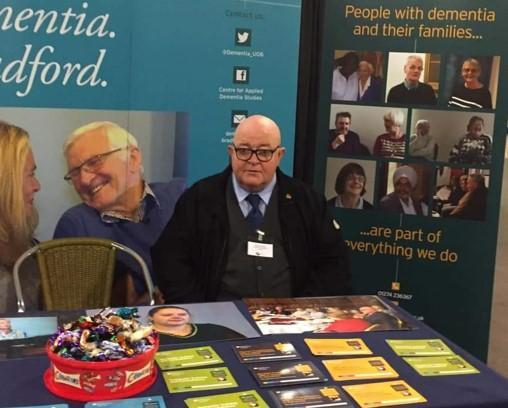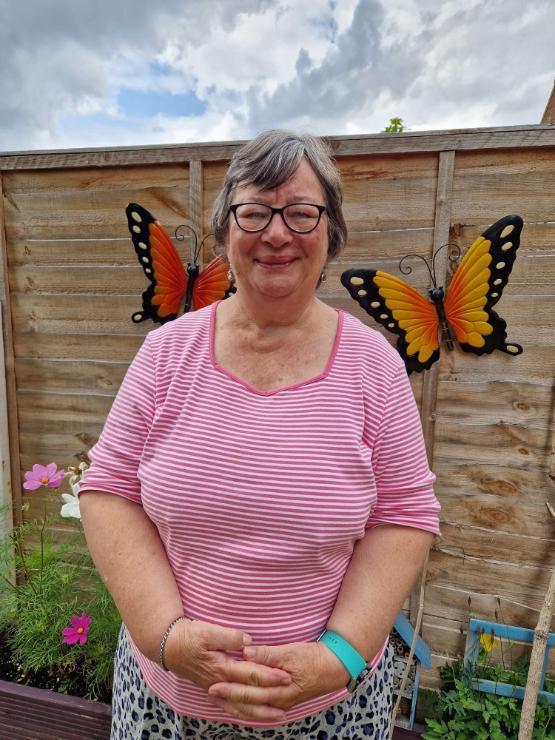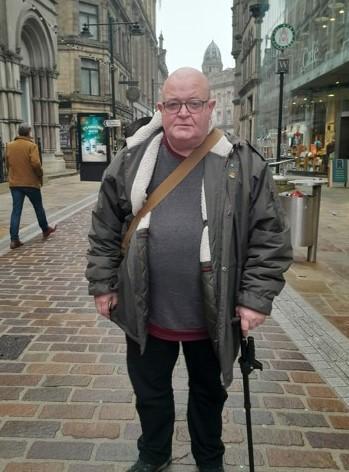First-of-its-kind course created by people with dementia

FOR the first time, people living with dementia have designed a new postgraduate course for health and social care professionals, telling staff what they really want them to know about the condition.
A group of Experts by Experience were given a blank canvas to construct the MSc module, Understanding the Me in Dementia, with the University of Bradford’s Centre for Applied Dementia Studies, identifying the title, topics, exercises, assessment and content - something which has never been done before.
They will also be involved in teaching the module alongside academic staff at the university.
At the first of 13 online workshops with 22 people living with dementia, from all parts of the UK and Ireland, participants were asked to identify what they most wanted health and social care professionals to know. Here are some of their comments:
- Jacqui Bingham, from Stockport, Greater Manchester, said: “I am still me even though I have a diagnosis. Let me be me. Don’t squash me into your box of what you perceive I should be.”
- Maq Quereshi, from Stoke-on-Trent, Staffs., said: “There’s a saying, ‘If you have met one person with dementia, you’ve met one person with dementia.’ I wish the professionals would actually use that. Often, they treat everyone the same, they don’t know the background of the person, they don’t know what type of industry they’ve worked in and even what type of dementia they have. “
- Dory Davies, from Flintshire, Wales, said: “Don’t assume. We can still learn new things and people with dementia can still teach others new things.”
- Chris Maddocks, from Eastbourne, East Sussex, said: “See the person, not the dementia. Speak to the person, don’t speak to the caregiver. Don’t give us a diagnosis and send us away telling us to get our affairs in order - there are still things we are able to do.”
- Allison Batchelor, from Dundonald, Northern Ireland, said: “Treat me with respect, I am still me, I am not my dementia. Consult with people with dementia, don’t presume to know what’s best for me.”
- Gerald King, lives in Fife, Scotland, said: “A good life can be lived even after diagnosis of dementia. Talk to me as a person rather than talking over me or past me, I am still quite capable of having a conversation.”
The project started in January 2022 and the module will be taught from September 2023, on the MSc Advanced Dementia Studies programme. It can also be taken as a stand-alone, part-time distance learning module for health and social care professionals who care for people living with dementia. The module includes sections on: ‘Challenging stigma, stereotypes and discrimination,’ ‘Understanding the individual’ and ‘Communication.’
Danielle Jones, Associate Professor in Dementia Studies, said: “Our Experts by Experience play a leading role in our education provision within the Centre for Applied Dementia Studies. People with dementia and their carers have been involved in all aspects of our research and teaching, from marking students’ assessments to reviewing their work and developing the programme. We wanted this module to be entirely produced by people who know the most about what it’s like to have dementia so that professionals can learn from them.”
Clare Mason, Dementia Care Trainer and Experts by Experience Lead, said: “For too long, people living with dementia have felt they have had no say in the way they are treated. The feedback we have had from creating this process shows people with dementia want to be heard.”
'We are all different'

Jacqui Bingham, 70, lives in Stockport, Greater Manchester with her friend of more than 20 years, Carole Perry. Originally from South Africa, Jacqui moved to the UK in 2000 and worked until 2018 as a funeral arranger. She was diagnosed just after retirement with early onset Alzheimer’s.
Jacqui said: “I have bad days and good days, but I am still me. I can still catch a train to Bradford or to Norwich, like I did last week to attend a conference. People say, ‘How can you do that on your own?’ I say, ‘Well, I just sit on the train. I’m not driving it.’
“This is why this course is so important. People make assumptions about dementia but we are all different. If you read the books, you get a very black and white picture of dementia. This module aims to get underneath all that so healthcare professionals can learn from us.
“When I was first diagnosed, I went to a Memory Clinic and one of the subjects was about eating properly. It was as if, suddenly, with a diagnosis, you were expected to forget how to eat. I once asked what other subjects would be discussed but they wouldn’t tell me ‘in case I might not come to them.’ But shouldn’t that be my choice? A lot of the time, people with dementia are told what is what, we are not part of the conversation.
“Clare and Danielle really listen to us and if they don’t understand something, they ask more questions, they don’t make assumptions. They come into the dementia world.
“Previously, when organisations have wanted input from people with dementia, we have only been added as an afterthought. This type of inclusion is too often very tokenistic and more of a PR exercise than anything else. Over the last 20 years, the University of Bradford has a proven track record of quality engagement and valuing its experts by experience.
“I am looking forward to catching the train to Bradford to teach some of the module. I won’t have a script, I will just be me. And if I have a bad day or I’m tired, I know Clare or Danielle will be there to give me a little prompt. That’s often all I need.”
'We can still do things'

Former truck driver, Michael Andrews, 64, was diagnosed with Posterior Cortical Atrophy, a rare type of dementia which causes visual impairment, in 2017, aged 57. He was awarded an honorary Doctor of Health from the University in December 2022.
Michael, who moved from Lisburn, Northern Ireland to Bradford 34 years ago, said: “After diagnosis, I went through a really difficult time. I didn’t want to talk to anyone or see anyone. There was talk of me having to move into a care home, even though I was - and still am - quite capable of living independently.
“Working with the University of Bradford as an ‘Expert by Experience’ has been a lifeline for me. It has given a purpose, to help students and healthcare practitioners understand what it really means to have dementia.
“When Clare Mason first approached me to help devise this course, I thought, ‘What do I know about writing a module? But Clare and Danielle Jones have made it easy for us by guiding us through the process.
“When we started to meet as a group, it was clear we all had experienced the same issues with how people perceive people with dementia, the stigma surrounding dementia and how people communicate with people with dementia.
“They make assumptions about what we can and can’t do. We can still get involved, we can still do things. Since working with the University of Bradford, I have been approached by other universities, including Huddersfield, Leeds Beckett and Bangor.
“I really enjoyed being part of designing the module. We had some funny moments too. At one point, someone suggested the title ‘Fifty Shades of Dementia.’ I hope this module gives healthcare professionals a better understanding of dementia. They have all the theoretical knowledge and all the books, but we want them to understand that we are all individuals and dementia affects us individually.”
- Applications for the MSc module, Understanding the Me in Dementia, are open until August 18, 2023.
